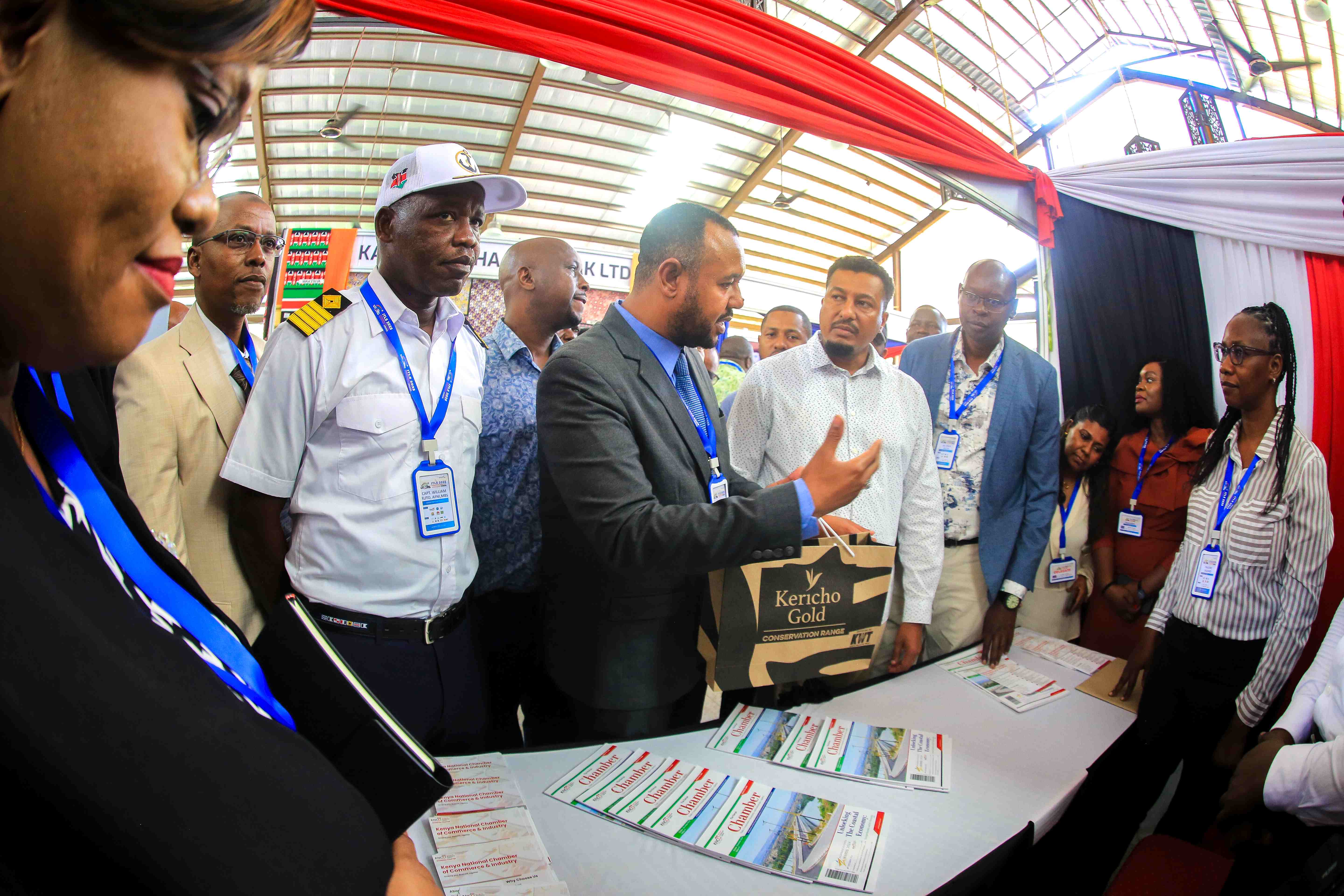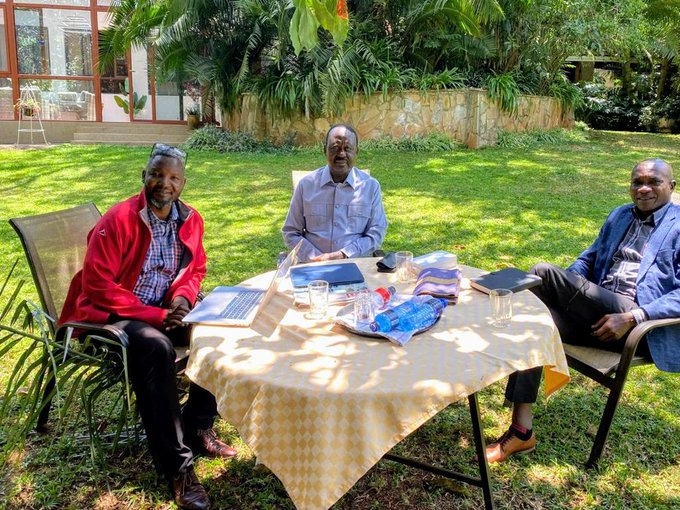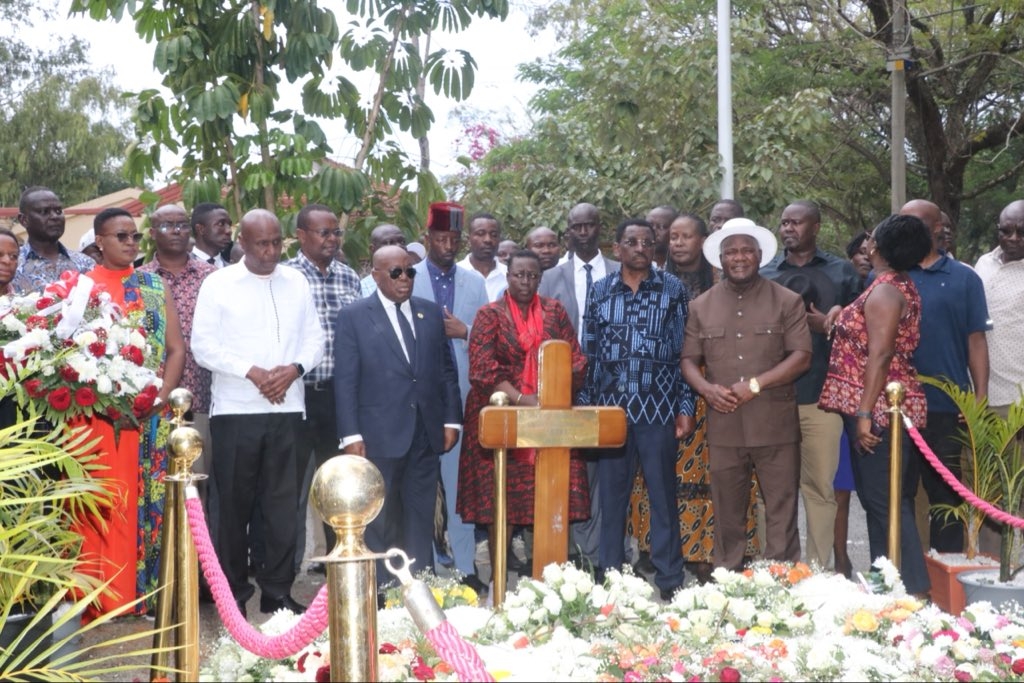
 KPA boss Captain William Ruto,
KNCCI Mombasa chair Aboud Jamal, Transport PS Mohamed Daghar and KNCCI
president Erick Ruto at the ITLS 2025 on Tuesday / JOHN CHESOLI
KPA boss Captain William Ruto,
KNCCI Mombasa chair Aboud Jamal, Transport PS Mohamed Daghar and KNCCI
president Erick Ruto at the ITLS 2025 on Tuesday / JOHN CHESOLItitle: Balance technology with human resources, logistics stakeholders told
Technological advancement in trade and logistics
should not come at the expense of human jobs and values, experts have said.
Kenya National Chamber of Commerce and Industry Mombasa
chapter chairman Aboud Jamal said while the logistics sector must embrace Artificial
Intelligence, automation and data-driven systems, the human element remains
irreplaceable.
He spoke at
the inaugural International Transport and Logistics Summit (ITLS) 2025 in
Mombasa on Tuesday.
The summit
brought together partners from more than 26 countries to discuss how digital
transformation is reshaping global trade and supply chains.
“The
logistics and trade landscape is evolving at an unprecedented speed. Yet, as we
embrace this digital transformation, we must remember that technology is just a
tool — not a replacement for people. It is human creativity, skill and
resilience that give meaning to innovation,” Jamal said.
He
said business growth depends on relationships and networks, which cannot thrive
without the human touch.
“As we modernise, we must ensure we do not lose the
values that underpin strong business relationships,” Jamal said.
Jamal, who
is also vice chairman of the World Maritime University, said Mombasa — the
gateway to East and Central Africa — must take the lead in shaping the future
of trade and logistics in the region.
Transport
Principal Secretary Mohamed Daghar said the government is investing heavily in
infrastructure to make logistics more efficient and interconnected.
“The
President is keen on upgrading 1,000km of roads and constructing 10,000km of
new tarmac roads. The modernisation of the Mombasa Port is also key to
improving trade within the Northern Corridor,” he said.
Kenya Ports
Authority (KPA) managing director William Ruto said Africa must adapt to global
technological changes to remain competitive.
“Our continent must embrace these changes so that we can lead in
transforming the logistics industry,” Ruto said.
He said efficient transport systems reduce business costs and attract investment.
KNCCI
national president Eric Ruto said Africa controls only three per cent of global
trade despite being home to 18 per cent of the world’s population and vast
resources.
“Africa
exports just 0.5 per cent of manufactured goods globally. That is a huge opportunity
we must seize if we are to strengthen our economies,” he said.
Kenya
International Freight and Warehousing Association national chairman Fred Aloo
emphasised the sector’s importance, noting that logistics drives access to
essential supplies, including food and medicine.
Mombasa
trade executive Mohamed Osman said the county is working with the private
sector and national agencies to promote digitisation and sustainability in port
operations.
“The
world needs a logistics ecosystem that is smart, sustainable and inclusive —
one capable of withstanding shocks while driving trade and economic growth,”
Osman said.
He said that digital technology is no longer a luxury but the engine of logistics efficiency, citing smart ports and digital cargo systems as key to the competitiveness of the marine trade.
Delegates from 26 countries, including Zambia, China, Mauritius, Nigeria, Rwanda and Latvia, attended the summit.












